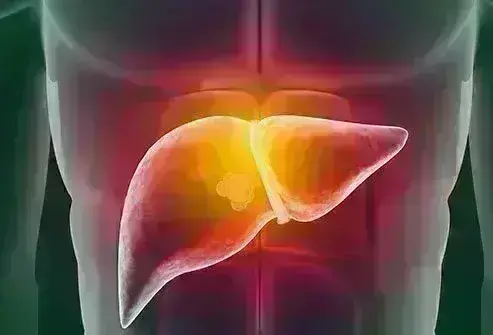- Home
- Medical news & Guidelines
- Anesthesiology
- Cardiology and CTVS
- Critical Care
- Dentistry
- Dermatology
- Diabetes and Endocrinology
- ENT
- Gastroenterology
- Medicine
- Nephrology
- Neurology
- Obstretics-Gynaecology
- Oncology
- Ophthalmology
- Orthopaedics
- Pediatrics-Neonatology
- Psychiatry
- Pulmonology
- Radiology
- Surgery
- Urology
- Laboratory Medicine
- Diet
- Nursing
- Paramedical
- Physiotherapy
- Health news
- Fact Check
- Bone Health Fact Check
- Brain Health Fact Check
- Cancer Related Fact Check
- Child Care Fact Check
- Dental and oral health fact check
- Diabetes and metabolic health fact check
- Diet and Nutrition Fact Check
- Eye and ENT Care Fact Check
- Fitness fact check
- Gut health fact check
- Heart health fact check
- Kidney health fact check
- Medical education fact check
- Men's health fact check
- Respiratory fact check
- Skin and hair care fact check
- Vaccine and Immunization fact check
- Women's health fact check
- AYUSH
- State News
- Andaman and Nicobar Islands
- Andhra Pradesh
- Arunachal Pradesh
- Assam
- Bihar
- Chandigarh
- Chattisgarh
- Dadra and Nagar Haveli
- Daman and Diu
- Delhi
- Goa
- Gujarat
- Haryana
- Himachal Pradesh
- Jammu & Kashmir
- Jharkhand
- Karnataka
- Kerala
- Ladakh
- Lakshadweep
- Madhya Pradesh
- Maharashtra
- Manipur
- Meghalaya
- Mizoram
- Nagaland
- Odisha
- Puducherry
- Punjab
- Rajasthan
- Sikkim
- Tamil Nadu
- Telangana
- Tripura
- Uttar Pradesh
- Uttrakhand
- West Bengal
- Medical Education
- Industry
Odevixibat may reduce pruritus in kids with progressive familial intrahepatic cholestasis: Lancet

A new study conducted by Richard J Thompson and team it was found that in children with progressive familial intrahepatic cholestasis (PFIC), odevixibat reduced pruritus and serum bile acids more efficiently than placebo and was usually well tolerated. The findings of this study were published in The Lancet Gastroenterology and Hepatology.
Progressive familial intrahepatic cholestasis is a series of inherited pediatric liver disorders caused by abnormalities in bile secretion genes. The purpose of this study was to compare the effects of odevixibat, an ileal bile acid transporter inhibitor, to placebo in children with PFIC.
Patients who were diagnosed with PFIC1 or PFIC2 who had pruritus and increased serum bile acids at screening were eligible for this 24-week, randomized, double-blind, phase 3 research. Using an interactive web-based approach, patients were randomly randomised (1:1:1) to once-daily oral placebo, odevixibat 40 g/kg, or odevixibat 120 g/kg. Patients, doctors, and study personnel were all blinded to therapy allocation; randomization was done in six-block increments and stratified by PFIC type and patient age. Patients were enrolled at one of 33 global study locations. The proportion of patients with positive pruritus evaluations at week 24 and the proportion of patients with serum bile acid response at week 24 were the primary outcomes studied. Efficacy and safety were evaluated in patients who were randomly assigned to receive one or more doses of the study medication.
The key findings of this study were as follow:
1. Between June 21, 2018, and February 10, 2020, 62 patients were randomly assigned to one of three treatment groups: placebo (n=20), odevixibat 40 g/kg per day (n=23), or odevixibat 120 g/kg per day (n=19).
2. The mean fraction of PPAs was considerably greater with odevixibat versus placebo in a model-adjusted (least squares) analysis.
3. The percentage of patients who responded to odevixibat versus placebo was likewise significantly higher.
4. Diarrhea or frequent bowel movements and fever were the most prevalent treatment-emergent adverse events (TEAEs); significant TEAEs occurred in three (7%) of 42 odevixibat-treated individuals and five (25%) of 20 placebo-treated patients.
In conclusion, in patients with PFIC, odevixibat, delivered as once-daily oral capsules, is a non-surgical, pharmaceutical approach for interrupting the enterohepatic circulation.
Reference:
Thompson, R. J., Arnell, H., Artan, R., Baumann, U., Calvo, P. L., Czubkowski, P., Dalgic, B., D'Antiga, L., Durmaz, Ö., Fischler, B., Gonzalès, E., Grammatikopoulos, T., … Horn, P. (2022). Odevixibat treatment in progressive familial intrahepatic cholestasis: a randomised, placebo-controlled, phase 3 trial. In The Lancet Gastroenterology & Hepatology. Elsevier BV. https://doi.org/10.1016/s2468-1253(22)00093-0
Neuroscience Masters graduate
Jacinthlyn Sylvia, a Neuroscience Master's graduate from Chennai has worked extensively in deciphering the neurobiology of cognition and motor control in aging. She also has spread-out exposure to Neurosurgery from her Bachelor’s. She is currently involved in active Neuro-Oncology research. She is an upcoming neuroscientist with a fiery passion for writing. Her news cover at Medical Dialogues feature recent discoveries and updates from the healthcare and biomedical research fields. She can be reached at editorial@medicaldialogues.in
Dr Kamal Kant Kohli-MBBS, DTCD- a chest specialist with more than 30 years of practice and a flair for writing clinical articles, Dr Kamal Kant Kohli joined Medical Dialogues as a Chief Editor of Medical News. Besides writing articles, as an editor, he proofreads and verifies all the medical content published on Medical Dialogues including those coming from journals, studies,medical conferences,guidelines etc. Email: drkohli@medicaldialogues.in. Contact no. 011-43720751


